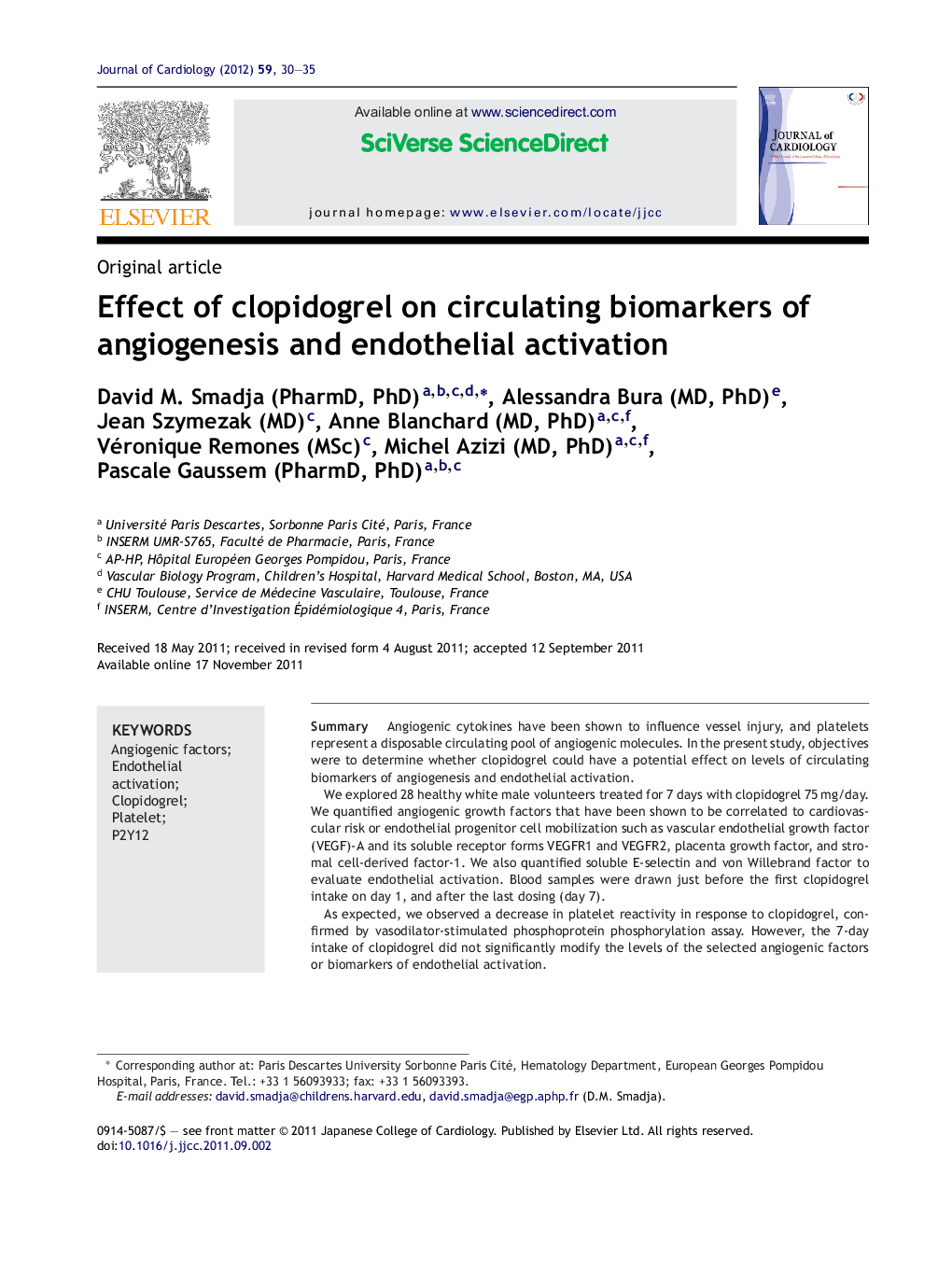| Article ID | Journal | Published Year | Pages | File Type |
|---|---|---|---|---|
| 2963165 | Journal of Cardiology | 2012 | 6 Pages |
SummaryAngiogenic cytokines have been shown to influence vessel injury, and platelets represent a disposable circulating pool of angiogenic molecules. In the present study, objectives were to determine whether clopidogrel could have a potential effect on levels of circulating biomarkers of angiogenesis and endothelial activation.We explored 28 healthy white male volunteers treated for 7 days with clopidogrel 75 mg/day. We quantified angiogenic growth factors that have been shown to be correlated to cardiovascular risk or endothelial progenitor cell mobilization such as vascular endothelial growth factor (VEGF)-A and its soluble receptor forms VEGFR1 and VEGFR2, placenta growth factor, and stromal cell-derived factor-1. We also quantified soluble E-selectin and von Willebrand factor to evaluate endothelial activation. Blood samples were drawn just before the first clopidogrel intake on day 1, and after the last dosing (day 7).As expected, we observed a decrease in platelet reactivity in response to clopidogrel, confirmed by vasodilator-stimulated phosphoprotein phosphorylation assay. However, the 7-day intake of clopidogrel did not significantly modify the levels of the selected angiogenic factors or biomarkers of endothelial activation.These results show that circulating angiogenic factor level in healthy subjects is not driven by P2Y12 platelet receptor-induced activation and clopidogrel does not modify in a significant way the endothelial activation level.
